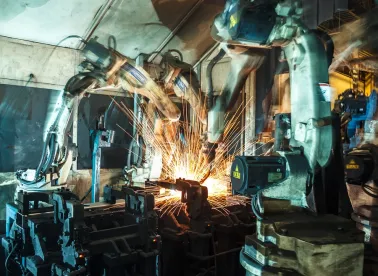It is difficult to find anyone affiliated with the automotive industry in the United States, Europe, Asia or anywhere else who is in favor of tariffs on automobiles, automobile parts, automobile raw materials or anything else that goes into making a car or truck or other vehicle. The industry seems to be in rare consensus agreement that such tariffs will do nothing more than raise prices and cost jobs. Forbes summed it up directly in its headline: Trump’s Auto Tariffs Receive Little Support In First Day Of Hearings.
Foreign companies, most of whom have made significant investments in the United States, are of course opposed to the tariffs. For example, nine different Japanese organizations submitted opinions opposed to the tariffs. And, of course, threats of retaliatory tariffs have been constant. The European Union has been vocal about its intentions to impose tariffs in response.
The Center for Automotive Research released a Trade Briefing analyzing the potential impact of the tariffs. Its conclusions were bad news for the industry:
- New vehicle prices will increase between $455 and $6,875;
- Used vehicle prices will increase due to heightened demand and constricted supply;
- Vehicle demand will drop by up to 2 million vehicles;
- Employment losses due to declining demand could mean the loss of over 700,000 jobs; and
- GDP could take a hit of over $60 billion.
The Peterson Institute for International Economics issued a dire warning: Trump’s Proposed Auto Tariffs Would Throw U.S. Automakers and Workers Under the Bus. Their analysis showed that even if no countries retaliated in response to the tariffs, imports, exports, production and employment would all decline. In fact, even without retaliation, 192,000 jobs would be lost (624,000 would be lost if countries enacted retaliatory tariffs).
Domestic companies also oppose the tariffs. General Motors stated that the tariffs would undermine GM’s competitiveness by increasing GM’s global costs. The Alliance of Automobile Manufacturers testified against the tariffs. In prepared testimony last week, the Alliance expressed “our strong opposition to this unprecedented, unwarranted investigation and the potential imposition of higher tariffs on imported autos and auto parts.”
Even labor unions were cautious in responding to the tariffs. As reported by the New York Times, Jennifer Kelly, the director of research at the United Auto Workers union, stated that “We caution that any rash actions could have unforeseen consequences, including mass layoffs of American workers.” Ms. Kelly emphasized that decades of offshoring had hurt US auto workers and that steps to protect the industry were supported.
What is not clear, is just how the tariffs are supposed to help workers. With credible analysis predicting the loss of jobs and declines in production, even those workers who keep their jobs will lose bargaining leverage as the industry moves into short term (if not longer term) decline. The automotive industry and its supply chain has spent the past few decades globalizing like few other industries. Finding a way to benefit American workers without pulling out the rug from the industry is definitely a challenge.




 />i
/>i

